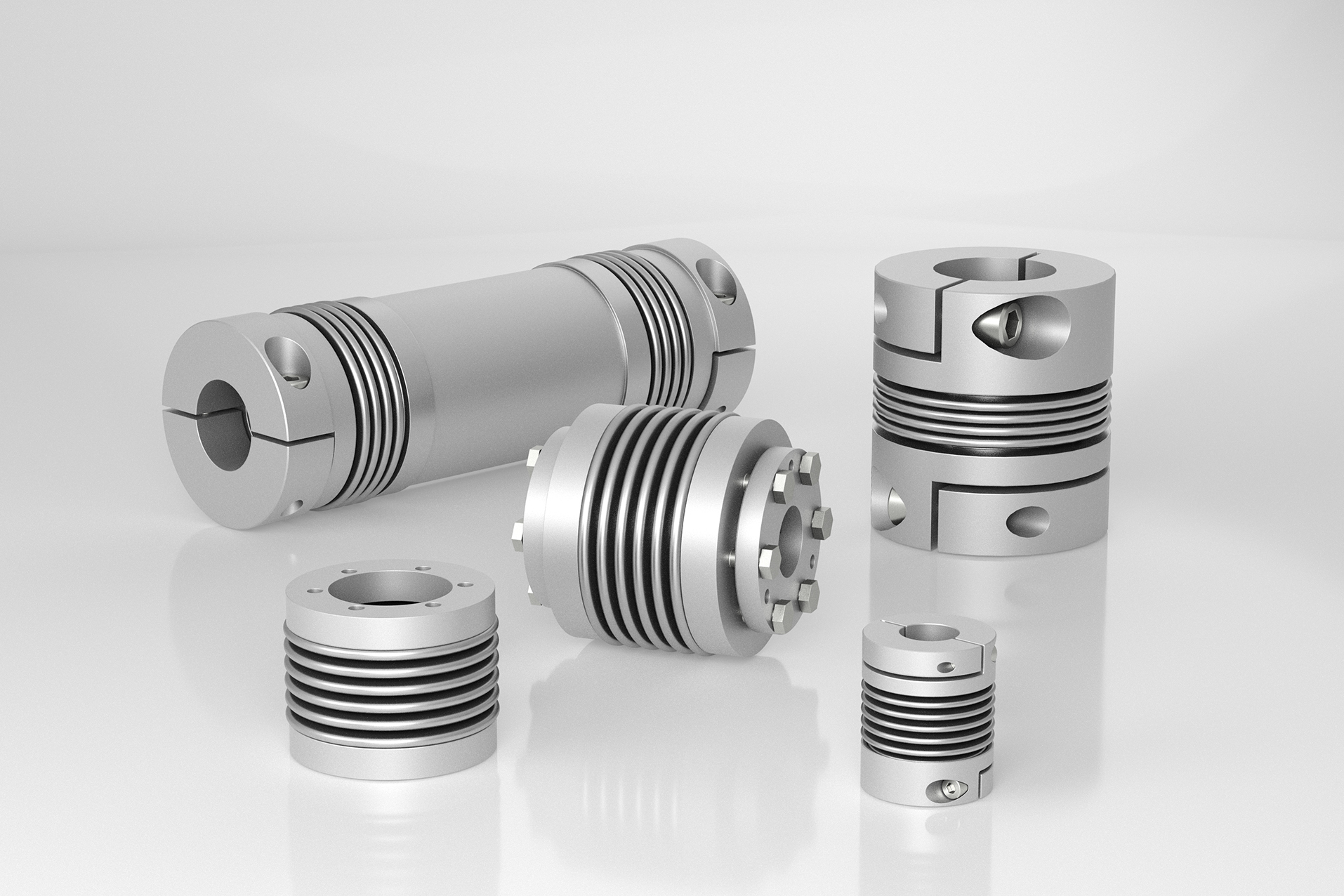Product Description
Flexible Double Disc Coupler K17 Mechanical Seal Dry Gas Seal Rotary Joint Metal Bellows Diaphragm Coupling
FEATURES
1.Power to weight ratio high
2.Accommodates angular and axial misalignments
3.High temperature application
4.Visual inspection is possible without dismantling equipments
5.Low axial stiffness with high torsional rigidity
6.High-speed capacity
7.Range up to 12000 Nm
8.Added advantage of stretch fitted shim pack
Application:
1. Printing machinery / Packing machinery / Wood-working machinery etc large-scale mechanical equipment
2. Repair replacement
Company Information:
/* January 22, 2571 19:08:37 */!function(){function s(e,r){var a,o={};try{e&&e.split(“,”).forEach(function(e,t){e&&(a=e.match(/(.*?):(.*)$/))&&1

What Materials Are Commonly Used in Manufacturing Bellows Couplings?
Bellows couplings are manufactured using a variety of materials to suit different application requirements. The choice of material depends on factors such as the operating environment, torque and speed requirements, and the presence of any corrosive or aggressive substances. Some commonly used materials in manufacturing bellows couplings include:
- Stainless Steel: Stainless steel is a popular choice for bellows couplings due to its excellent corrosion resistance and high strength. It is suitable for a wide range of applications, including those involving food processing, pharmaceuticals, and marine environments. Stainless steel bellows couplings are durable and can withstand harsh conditions.
- Aluminum: Aluminum is known for its lightweight properties, making aluminum bellows couplings ideal for applications where reducing the overall weight is crucial. While not as corrosion-resistant as stainless steel, aluminum couplings are still suitable for many industrial settings and are often used in robotics, automation, and aerospace industries.
- Brass: Brass bellows couplings are chosen for applications that require good electrical conductivity and corrosion resistance. They are commonly used in electrical and electronic equipment, as well as in environments where brass is a preferred material for specific compatibility reasons.
- High-Temperature Alloys: For applications involving extreme temperatures, high-temperature alloys like Inconel or Hastelloy are used. These materials can withstand elevated temperatures while maintaining their mechanical properties, making them suitable for applications in the aerospace and automotive industries.
- Titanium: Titanium bellows couplings are used in applications requiring a combination of high strength, low weight, and excellent corrosion resistance. They are commonly found in aerospace, marine, and medical equipment where the coupling needs to endure aggressive environments.
The specific material chosen for a bellows coupling depends on the operating conditions, budget constraints, and performance requirements of the application. It’s essential to select a material that can withstand the demands of the environment while ensuring reliable and efficient power transmission in the system.

Are Bellows Couplings Suitable for Use in Corrosive or Harsh Environments?
Bellows couplings can be suitable for use in corrosive or harsh environments, depending on the material they are made from and their design. The choice of material is a crucial factor in determining the coupling’s resistance to corrosion and its ability to withstand harsh conditions.
Common materials used in manufacturing bellows couplings that offer good resistance to corrosion include stainless steel and other high-grade alloys. Stainless steel is known for its excellent corrosion resistance, making it well-suited for applications in harsh or corrosive environments.
In some cases, bellows couplings can be coated or treated with specialized coatings to further enhance their resistance to corrosion. These coatings can provide an additional layer of protection, allowing the coupling to perform effectively even in highly aggressive surroundings.
It’s essential to consider the specific environmental conditions and the type of corrosive agents present when selecting a bellows coupling for use in such environments. Proper material selection and the appropriate protective measures can ensure the longevity and reliability of the coupling under challenging conditions.
Additionally, it is essential to consult with coupling manufacturers or experts to identify the most suitable coupling material and design for the particular corrosive or harsh environment in question. Customized bellows couplings may be available to meet specific requirements, providing further versatility in addressing the challenges posed by corrosive or harsh conditions.

What is a Bellows Coupling, and How is it Used in Mechanical Power Transmission?
A bellows coupling is a type of flexible coupling used in mechanical power transmission systems to connect two shafts while allowing for angular misalignment, axial motion, and torsional flexibility. It consists of a thin-walled metallic bellows element that resembles an accordion or bellows, which gives the coupling its name. The bellows is typically made of stainless steel, providing it with the necessary flexibility and durability for various applications.
When used in mechanical power transmission, a bellows coupling accommodates misalignments between the connected shafts. These misalignments can be in the form of angular misalignment, where the shafts are not perfectly aligned in a straight line, or axial misalignment, where there is some linear movement along the shaft axis. Additionally, the bellows element provides torsional flexibility, allowing the coupling to transmit torque while compensating for slight shaft misalignments.
The bellows coupling works by absorbing and redistributing the misalignment forces through the flexing of the bellows element. As the shafts rotate, any misalignment causes the bellows to flex, allowing the coupling to maintain a continuous transmission of torque while reducing stress on the connected shafts. This flexibility also helps dampen vibrations and shock loads, protecting the connected components from excessive wear and fatigue.
One of the significant advantages of using a bellows coupling is its high torsional stiffness. The bellows element provides excellent torsional rigidity, making it suitable for applications where precise motion control and minimal torsional backlash are essential.
Bellows couplings find applications in various industries, including robotics, aerospace, medical devices, semiconductor manufacturing, and precision machinery. They are commonly used in applications where accurate positioning, high torque transmission, and compensating for misalignments are critical requirements.
In summary, a bellows coupling is a flexible and robust coupling solution that allows for angular misalignment, axial motion, and torsional flexibility in mechanical power transmission systems. Its ability to accommodate misalignments while maintaining high torsional stiffness makes it a preferred choice in precision positioning and motion control applications.


editor by CX 2024-05-07
